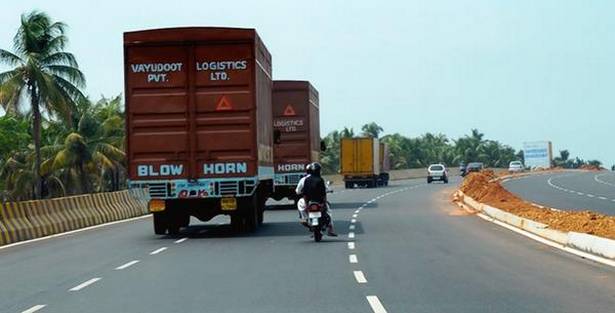The positive results of GST are visible across the sectors from an improved tax base to ease of doing business. It has been less than two years since the historic midnight implementation of GST on July 1, 2017. Within the short span of one year, the turnaround time for trucks improved by 10-15 percent in a day. This helped to reduce the logistic cost substantially and therefore the consumer now gets goods at cheaper prices and the companies profit have increased. According to Mahindra Logistics, a 3,851 crore rupees firm which transports automobiles, Fast moving consumer goods (FMCG), and consumer durables – GST has been helpful in reducing the logistics cost.
“Trucks moving 300-350 km a day in the pre-GST days are now moving 400-410 km. Faster turning wheels have led to a drop in cost of logistics,” said Pirojshaw Sarkari, CEO, Mahindra Logistics. The automobile firms which faced problems in sub-assembly due to excise duty are trying to catch up with global practice after the implementation of GST. “Earlier, most of the automobile companies did the sub-assembly — which involved putting together two-three parts to form say, an engine — within the factory because the Excise Law did not permit sub-assembly outside of factory. But now, with Excise gone and GST coming in, auto-makers have a choice to store their parts. Cost of manufacturing or sub-assembly is higher for a manufacturer than a for logistics player,” said Sarkari.
It was expected that after the rollout of GST the companies will move towards higher tonnage trucks and warehouse consolidation due to the removal of inter-state tax barriers.
ICRA conducted a study on 50 transport companies and 15 customer-oriented companies to find out the positive and negative effects of GST on transportation and warehousing. In its study, ICRA found that the removal of inter-state check posts has been the main factor in reducing the transportation timing. “The impact is more pronounced in States like Kerala, West Bengal, Maharashtra, Madhya Pradesh and Bihar, which were known for notoriously high waiting time,” said the report by ICRA.
The study found that the e-way bill which is necessary for intra-state transporters to carry out goods from one place to another had a positive effect on logistics efficiency. “The overall impact of an e-way bill has been positive,” said the study. The two-thirds of the respondent said there is significant time-saving and paperwork reduction due to digitization. On the overall impact of the GST in transportation and warehousing and its long-term prospects, ICRA said the full benefit of GST on the road logistics sector is expected to be realized over the longer term.
One of the main purposes to bring GST was to reduce the transportation time in transfer of goods between states. The end number of toll tax collection points in the states like Maharashtra and Kerala increased the transportation time. In the post GST period, the time wasted on toll tax collection points has been reduced significantly which resulted in turnaround time going down by 20 percent. The companies have to maintain warehouses in different states to take benefits of lower taxation in one state in comparison to other. Now since the taxation is at single rate throughout the country the companies could consolidate their warehouses because they have to pay same tax irrespective of the place of the warehouse.
